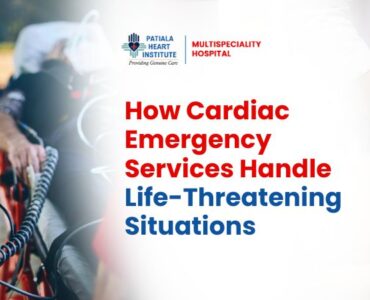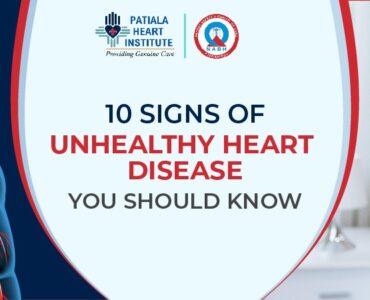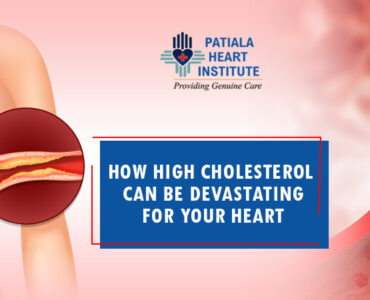Your heart is not plugged into an outlet that requires a switch to turn on. Rather, your heart is like a lamp that runs on electrical signals.
Every time your heart beats, the electrical signals travel from the upper to the lower chamber. These signals give an indication to your heart to pump blood. However, when the signals get slowed down, it causes heart block.
This condition occurs when electrical signals that control your heartbeat are partially or completely blocked. As a result, it makes your heartbeat slow as it can’t pump blood effectively. Some people are born with heart blocks, while others develop them later in life.
Heart block is generally categorized depending on the extent of electrical signal impairment. There are mainly three kinds of heart block. They are:
First-degree heart block
This is the least severe type of heart block. At this stage, the electrical signals slow down as they move from the atria to the ventricles. However, they continue to reach the ventricles without any disruption. Therefore, first-degree heart block generally doesn’t require any treatment.
Second-degree heart block
In second-degree heart block, the impulses are intermittently blocked. This heart block is further, categorized into two categories:
- Mobitz type one: The electrical signals slow down between beats, and your heart drops a beat over time.
- Mobitz type two: Sometimes the electrical signals get to the ventricles, and sometimes they don’t. This type of heart block can often lead to third-degree heart block.
Third-degree heart block
This is the most severe kind of heart block. At this stage, the electrical signals don’t pass from your atria to your ventricles at all periods. This can result in the complete failure of electrical conduction.
Depending upon these stages, you may develop certain symptoms of heart disease. However, the symptoms of a heart block can vary from person to person. If you have a first-degree heart block, you may not develop any symptoms.
In case of second-degree heart block, you may develop certain heart block symptoms, including:
- Chest pain
- Dizziness
- Fainting
- Fatigue
- Nausea
- Shortness of breath
However, the heart block symptoms may vary in the case of third-degree heart blocks. Immediately call your healthcare provider if you discover:
- Cardiac arrest
- Fainting
- Irregular heartbeats
- Severe fatigue
Heart block can cause severe consequences if the early symptoms are ignored. The type of heart block, its location, and its severity can vary from person to person. If the condition is left untreated, it may pose danger to your health. Therefore, the diagnosis of a heart block is essential to get timely treatment.
Diagnosis of a heart block
To diagnose your condition, your healthcare provider will consider:
- Your overall health history
- Ask about your family history of heart block
- The medicines you are taking
- Symptoms you are experiencing
After that, he will conduct a physical exam and can also suggest certain tests, including:
- ECG: It helps record your heart’s electrical impulses
- Holter or event monitor: This tracks your heart’s rhythm for a period of time. You can wear a Holter monitor for 24 to 48 hours or several weeks.
- Implantable loop recorder: This is a small heart recorder that is placed under the skin over the heart.
- Electrophysiology Study: In this outpatient procedure, thin, flexible wires are threaded from your arm to your heart to test the heart’s wiring system.
Treatment for heart block
Based on the results of these tests and the types of heart blocks, your doctor will start treatment. However, you might not need any treatment for first-degree heart blocks.
Although, some severe cases of second-degree heart blocks may require the placement of a small device called a pacemaker in your chest. Third-degree heart block is the stage of complete heart block. Treatment in this case also includes a pacemaker since the heart cannot reliably pace itself due to complete blockage.
Minimally invasive treatment for heart block
The commonly used invasive heart block treatments are given below:
Angioplasty
In this procedure, a balloon is used to open a blockage. A long and narrow tube called a catheter is passed through the sheath surrounding the heart. This procedure is good to perform in case of severe blockage.
Pacemaker
This implantable device is generally used in the case of second-degree or third-degree heart blocks. A pacemaker is a device that is useful to check slow heart rhythms. This small device is implanted beneath the skin and connected to a pacing wire to stimulate the heart to a beat.
Non-invasive heart block treatments
Your cardiologist can also suggest non-invasive treatment in case of heart blockage. Some of the most common non-invasive treatments for heart blockage are:
Extracorporeal Shockwave Myocardial Revascularization (ESMR) treatment
ESMR treatment successfully replaces angioplasty or bypass surgery. In this non-invasive treatment, new blood vessels are formed to improve the oxygenated blood supply to the affected portion of the heart.
This treatment uses extracorporeal shockwave technology to improve the blood supply to your heart muscles. It is considered an ideal way to treat severe heart blockages.
Enhanced External Counter Pulsation [ EECP] treatment
This non-invasive treatment is performed to lower the number and intensity of angina episodes. In addition, this treatment firmly compresses the blood vessels in the lower limbs to increase the blood flow to your heart.
Other heart block treatment options:
Besides the non-surgical treatment options, your doctor may also suggest you change your medications. For example, your doctor can suggest certain anti-arrhythmic drugs to change the heart’s electrical signals and prevent rapid heart rhythms.
Lifestyle changes
Adopting a heart-healthy lifestyle may help reduce your risk of heart blocks. You can modify your lifestyle by adopting the following changes:
- Cutting out alcohol and caffeine
- Avoiding stress
- Eating a healthy diet
Patiala Heart Institute: Best Cardiologists in Patiala
As the best heart specialist in Patiala, We offer top-quality healthcare services. We provide innovative healthcare solutions to all our patients.
Book an appointment with our cardiologist and get the most deserving care for your heart.
Frequently Asked Question
Is walking good for your heart?
Walking is among the best exercises for your heart. It can improve your cholesterol level, blood pressure level and energy level. Thus, it protects you from various kinds of heart diseases.
Can stress cause heart block?
Yes, stress can put you at risk of heart block. It can increase the plaque rate in your arteries. Further, it can make your platelets sticky and prone to forming clots. This can cause blockage in your heart.






